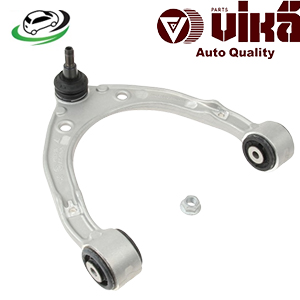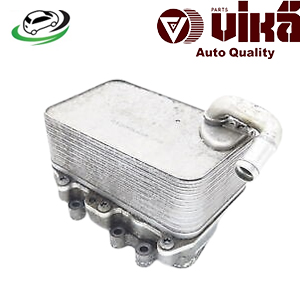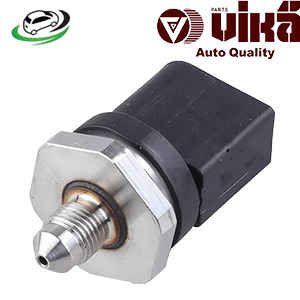-4%
Get AUDI A3 8P/ B7 A4/ B8 A4/ B8 A5/ C6 A6/ D3 S8/ MK1 R8 / VW CC/ Golf V/ Jetta V/ Passat B6 High Pressure Fuel Sensor 06J906051C
The high pressure fuel sensor is a critical component in modern fuel injection systems, playing a key role in ensuring optimal engine performance, efficiency, and emissions control. By monitoring the fuel pressure within the system, this sensor provides real-time data that helps the engine control unit (ECU) make necessary adjustments for proper fuel delivery. Understanding the functions, benefits, common symptoms of failure, and maintenance practices related to the high pressure fuel sensor is essential for vehicle owners and automotive professionals.
Functions of the High Pressure Fuel Sensor
- Fuel Pressure Monitoring: The primary function of the high pressure fuel sensor is to continuously monitor the fuel pressure in the fuel rail or injection system. It measures the pressure of the fuel delivered to the injectors, providing critical data to the ECU for optimal fuel delivery.
- Data Transmission to the ECU: The high pressure fuel sensor sends real-time pressure data to the ECU. This information is crucial for the ECU to adjust fuel injection timing and duration, ensuring that the engine receives the appropriate amount of fuel for varying operating conditions.
- Maintaining Optimal Fuel Delivery: By monitoring fuel pressure, the sensor helps maintain the ideal fuel-air mixture necessary for efficient combustion. This is essential for optimizing engine performance, fuel efficiency, and minimizing harmful emissions.
- Diagnostic Capabilities: The high pressure fuel sensor plays a role in the vehicle’s onboard diagnostic (OBD) system. If the sensor detects abnormal fuel pressure levels, it can trigger a check engine light and store diagnostic trouble codes (DTCs) for troubleshooting. This allows technicians to quickly identify and address potential issues in the fuel system.
- Safety Features: In some vehicles, the high pressure fuel sensor is part of the safety system. It helps prevent fuel leaks and potential engine damage by ensuring that fuel pressure remains within safe operating limits. If pressure exceeds certain thresholds, the sensor can signal the ECU to take corrective action, such as reducing fuel delivery.
Design and Construction of the High Pressure Fuel Sensor
The design and construction of high pressure fuel sensors vary by manufacturer and application, but they generally consist of several key components:
- Pressure Transducer: At the core of the high pressure fuel sensor is a pressure transducer, which converts fuel pressure into an electrical signal. This transducer often employs piezoelectric or strain gauge technology to accurately measure pressure changes.
- Electrical Connector: The sensor is equipped with an electrical connector that interfaces with the vehicle’s wiring harness. This connector allows the sensor to transmit data to the ECU and receive power.
- Sealing and Protection: Given the harsh conditions in which fuel sensors operate, they are designed with robust sealing materials to protect against fuel, heat, and moisture. This ensures reliable performance and longevity.
- Calibration: High pressure fuel sensors are calibrated for specific pressure ranges and operating conditions. Proper calibration is crucial for accurate readings and optimal performance within the fuel system.
Benefits of a Properly Functioning High Pressure Fuel Sensor
A well-functioning high pressure fuel sensor provides numerous benefits that enhance overall vehicle performance:
- Improved Fuel Efficiency: By accurately monitoring and adjusting fuel pressure, the high pressure fuel sensor helps optimize fuel delivery. This results in better fuel efficiency, allowing drivers to get more mileage out of every tank of fuel.
- Enhanced Engine Performance: Consistent and accurate fuel delivery leads to improved engine performance. The engine can operate at its optimal power range, resulting in smoother acceleration and better responsiveness.
- Reduced Emissions: Proper fuel-air mixture facilitated by the high pressure fuel sensor helps minimize harmful emissions. This is crucial for meeting regulatory standards and promoting environmental sustainability.
- Early Detection of Issues: The high pressure fuel sensor is integral to the vehicle’s diagnostic system. It can detect pressure anomalies and trigger warnings, allowing for early detection of potential fuel system problems. This can prevent more extensive repairs and ensure safety.
- Increased Reliability: A properly functioning high pressure fuel sensor contributes to the overall reliability of the fuel injection system. It helps prevent issues such as fuel leaks, misfires, and engine stalling, resulting in a more dependable vehicle.
Symptoms of a Failing High Pressure Fuel Sensor
Recognizing the symptoms of a failing high pressure fuel sensor is crucial to maintaining vehicle performance and preventing further damage:
- Check Engine Light: One of the most common symptoms of a failing high pressure fuel sensor is the illumination of the check engine light. The ECU may detect abnormal fuel pressure readings and store related diagnostic trouble codes (DTCs).
- Poor Engine Performance: A malfunctioning sensor can lead to poor engine performance, including rough idling, hesitation during acceleration, and reduced power. The engine may struggle to maintain a consistent speed, particularly under load.
- Decreased Fuel Efficiency: If the high pressure fuel sensor fails to provide accurate pressure readings, it can lead to improper fuel delivery. This often results in decreased fuel efficiency, with drivers noticing more frequent trips to the gas station.
- Stalling or Misfiring: An erratic fuel pressure signal can cause the engine to stall or misfire. Drivers may experience sudden loss of power, particularly during acceleration, as the fuel delivery becomes inconsistent.
- Fuel Leaks: In some cases, a failing high pressure fuel sensor may result in fuel leaks due to excessive pressure in the fuel system. Visible fuel leaks around the sensor or fuel rail should be addressed immediately to prevent fire hazards.
Maintenance of the High Pressure Fuel Sensor
Proper maintenance of the high pressure fuel sensor is essential for ensuring its reliable operation and longevity:
- Regular Inspections: Incorporate the high pressure fuel sensor into routine maintenance inspections. Look for signs of wear, damage, or leaks in the sensor and surrounding fuel lines.
- Fuel System Maintenance: Regularly service the fuel system to prevent clogs and contamination that could affect sensor performance. This includes replacing fuel filters and using high-quality fuel to minimize deposits.
- Electrical Connections: Check the electrical connections to the high pressure fuel sensor for corrosion or damage. Ensuring clean and secure connections is vital for accurate data transmission to the ECU.
- Replace as Needed: If the high pressure fuel sensor shows signs of failure or triggers a check engine light, have it tested and replaced as necessary. Prompt replacement can prevent further issues in the fuel system.
- Professional Diagnostics: If experiencing symptoms of a failing high pressure fuel sensor, consider having the vehicle diagnosed by a professional technician. They can use specialized tools to accurately assess the sensor’s performance and related systems.
Conclusion
In conclusion, the high pressure fuel sensor is a vital component of modern fuel injection systems, responsible for monitoring fuel pressure and ensuring optimal engine performance, efficiency, and emissions control. Its functions include data transmission to the ECU, maintaining proper fuel delivery, and providing diagnostic capabilities. A properly functioning high pressure fuel sensor enhances fuel efficiency, engine performance, and reliability, while also allowing for early detection of issues. Regular maintenance and prompt attention to symptoms of failure are essential for keeping the fuel system in optimal condition, ultimately contributing to a safer, more efficient, and environmentally friendly vehicle. Understanding the importance of the high pressure fuel sensor empowers vehicle owners to take proactive measures in maintaining their vehicles, ensuring a smoother and more enjoyable driving experience.
Follow us on Facebook for more parts.




Reviews
Clear filtersThere are no reviews yet.